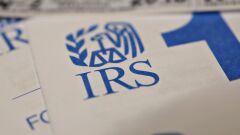It seems only natural that scammers would try to latch themselves onto familiar entities that automatically intimidate the public.
Enter the Internal Revenue Service. Lately a growing number of scams leverage the tax agency (or the threat of it), probably figuring that if you're going to make up muscle to threaten somebody, how can you do better?
Here are some details behind the most recent frauds trumpeting the IRS and how taxpayers can fight back.












